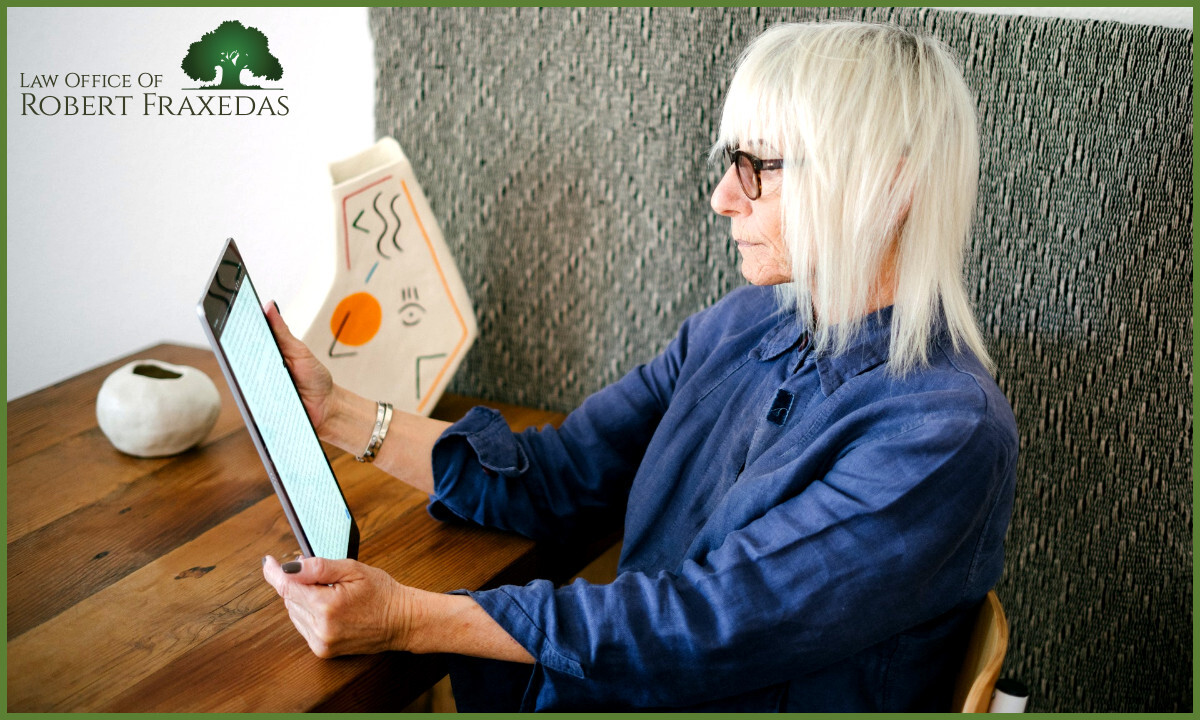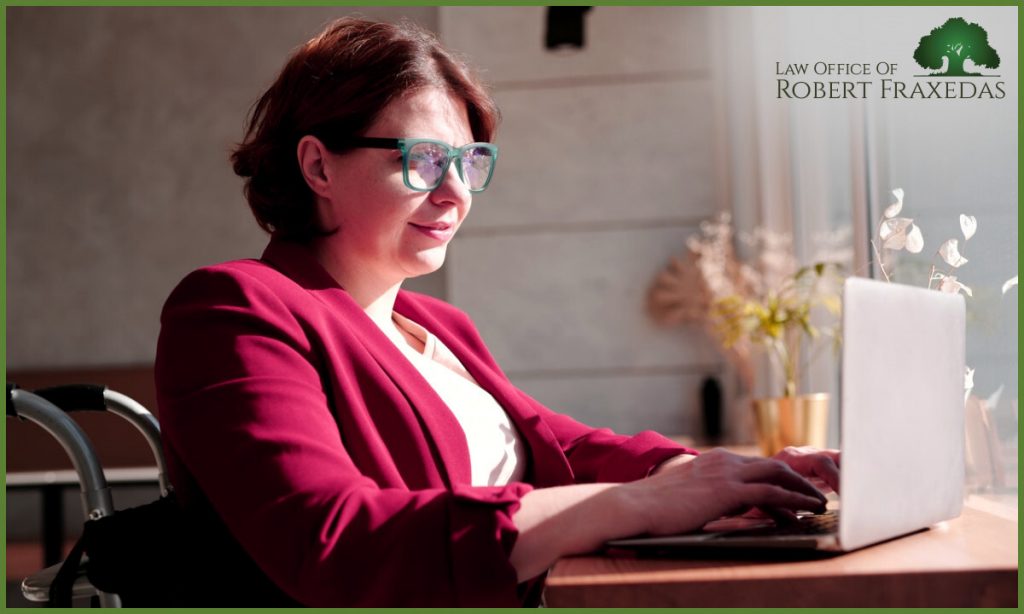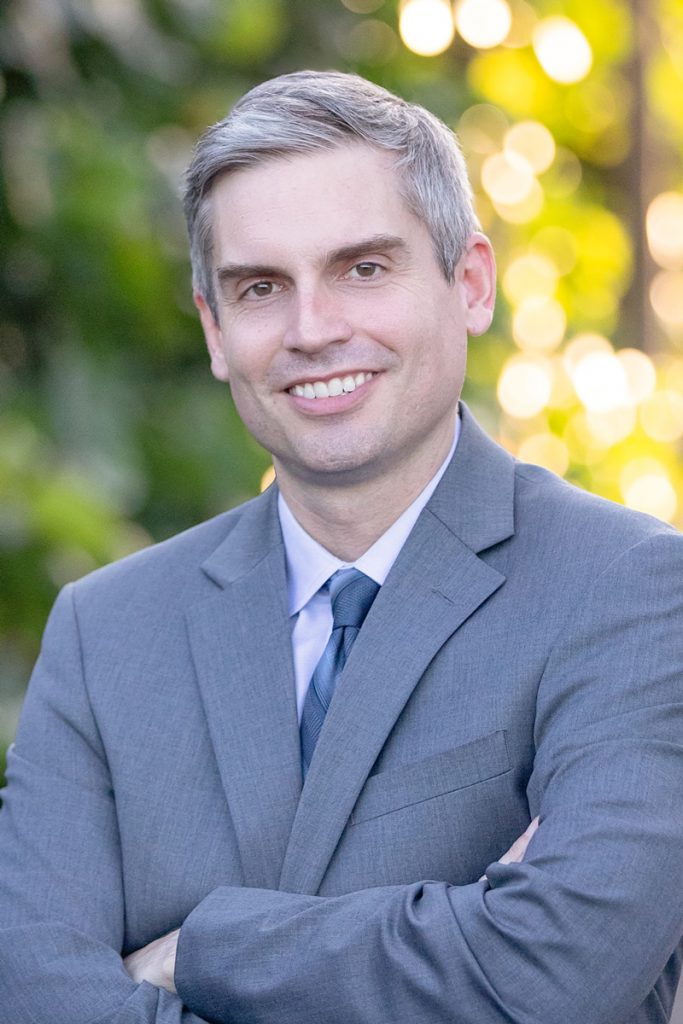
Blog Post
Americans rush to make online wills in the face of the coronavirus pandemic
June 24, 2020 / Category: Uncategorized

With COVID-19 impacting more and more Americans, individuals across the country are scrambling to set up wills and end-of-life directives.
While some may think they can easily create a will themselves via an online service, truth is, wills may not be executed in compliance with the proper will formalities, and that could end up making the will invalid.
Luckily, you can count on us to help with any legal matters or questions, whether that be for an individual or community group. Set up a FREE consultation with us today — in person and virtual meetings both available.
We use cutting-edge software to securely create, maintain, and instantly share your files and documents, all to best accommodate you. Call us today at 561.288.9788 or fill out the form on our site for your FREE consultation.
“I started seeing stories of young people who are in otherwise perfectly good health in the hospital or in critical condition with the coronavirus,” she says. “I’m willing to think about the worst-case scenario, and I wanted to be prepared — no one is immune.”
Last Thursday, as people began social distancing in earnest, Hopkins created an account with Cake, a company that lets people create wills and other end-of-life plans entirely online. From her home, she outlined who would get her things, including jewelry, assets from two retirement accounts and loads of Beyoncé paraphernalia. “I’m obsessed with her,” says Perkins.
She also gave directives on the kind of funeral she’d want, how she should be cared for if she becomes mentally incapacitated and even who should manage her social media accounts if she passes away. “I was surprised by the things it asked me that I hadn’t thought of,” she says.
Over the last two weeks, online will companies have seen an explosion in users. As of Monday, Boston-based Gentreo has seen a 143% week-over-week increase in people filling out wills, according to the company, while San Diego’s Trust & Will has seen a 50% uptick in users. “We’ve had a massive increase over the last two weeks,” says Cody Barbo, Trust & Wills founder and CEO. “It’s parents with minor children or people over 50 who are concerned about their own health if they contract the disease.”
The rise in online wills
Over the last few years, a number of online estate planning start-ups have popped up, with all of them offering users a cheap and easy way to create a legally binding will. In about 30 minutes someone can detail all of their end-of-life wishes and ensure that everything from property to possessions to children will go to the right people if the unthinkable occurs.

Barbo started Trust & Will in 2017; it has since raised about $8 million in funding, according to Crunchbase, because he saw an opportunity to modernize the $170 billion estate-planning sector. If the tax industry could make filling out taxes easy to do online, then he could do the same with estate planning, he thought.
Plus, with only 37% of Americans having a will, according to Caring.com, there’s a massive opportunity to get more people to create one. Instead of having to find a lawyer and talk about death with someone you barely know, you can go through the entire process at home and, at a cost of between $39 and $399 or more, depending on the product, for much less than what a lawyer would charge. “Take the average American family,” says Barbo. “They have a life insurance policy, a couple of kids and some assets that may need to get divided. It’s pretty straightforward. Why not make it intuitive with an affordable price point?”
Court confusion?
However, as online wills grow in popularity, a chorus of lawyers increasingly caution against using them. A quick Google search will bring up articles on the dangers of do-it-yourself wills or stories of online wills that were thrown out in court.
Leslie Tayne, founder of New York-based Tayne Law Group, says that “if the online will meets all of the legal requirements of your state, the will can be deemed valid. However, since the vast majority of DIY wills are created and executed without any oversight from an attorney, a larger number of wills (may not be) executed in compliance with the proper will formalities, and that could end up making the will invalid.”
Sarah Wentz, a lawyer with Fox Rothschild in Philadelphia, had a client whose parent filled out an online will but ended up writing down contradictory information as to who got what and, after that person passed away, the will was contested in court.
“They left the same thing to multiple people,” she says. “If there was a lawyer, they would understand the nuances of how things need to be written, and the client can make sure that what they really want is being conveyed in the documents.”
Wills (may not be) executed in compliance with the proper will formalities, and that could end up making the will invalid.
Despite this situation, Wentz isn’t against online wills. They are legal — all you need is a notary and two witnesses (this can vary state by state) to sign a will, and the last step in creating an online will is printing out the document and getting it notarized — and they do ask you many of the same questions that a lawyer would. She does think they’re better for simpler wills, because it’s easier to make mistakes with more complicated estates.
“Some of the biggest litigation cases I’ve ever had have to do with discrepancies in documents and no real ability to understand what that person was doing,” she says.
Barbo says anyone, not matter how complicated the estate, can use them, while Mary Kate D’Sousa, a veteran estate lawyer and co-founder of Gentreo, says that while they can be used for complex estates, she agrees with Wentz in that those with around $3 million in assets or below might find it more useful than those with multimillion-dollar estates.
“You can still use these if you had millions of dollars,” says D’Sousa. “But at that point, you may want to spend the $10,000 on a lawyer and do other things to protect your money.” Those who are thinking about using an online will should make sure the site is compliant with state-specific regulations. While wills are generally created in the same way across the country, there are some nuances in each locale that, if ignored, could cause problems later on, says Wentz. Most online sites do take various regulations into account, and they automatically update their software when regulations change, but don’t take it for granted.
Virtual signing
As COVID-19 keeps people home, meeting with a lawyer to create a will may become more complicated, though the services lawyers provide have been deemed essential in many states.
Getting two witnesses and a notary to validate an online will could be difficult, too, though Barbo says that some jurisdictions are looking at ways for notaries and witnesses to sign by video or through an e-signing service like DocuSign. Last year the Uniform Law Commission approved the Electronic Wills Act, which permits the electronic signing of wills and allows probate courts to deem electronic wills legal. Typically, states adopt ULC recommendations, though it could take some time.
The crisis, though, may speed up adoption. Notaries can already create a will electronically in Nevada and Indiana — Florida’s introducing e-singing for wills on July 1 — while others are considering it. New York state recently announced that notaries can sign documents via video through April 18, but as of now, wills are not included.
Whether in person or on video, though, you will have to show a notary your ID to ensure that the will belongs to you and that you have the mental capacity to create one.
As the COVID crisis continues to unfold, it’s likely more people will be looking for an easy, but still effective, way to create a will. D’Sousa says that wills are often something that people will get to later, but there’s more of a sense of urgency to complete one now.
“As awful as the pandemic is, at least it will enable people to take action they need to protect their families and loved ones,” she says. “This has now moved from the to-do list to ‘I really have to get that done.’”
For Hopkins, who enjoyed the online will process and found that it made her think about important life decisions that she’s never thought of before, finally completing the document — and sharing it with her boyfriend, mother and best friend — has given her at least some peace of mind in all this COVID chaos. “I feel a lot better having multiple people who know what to do and what I want, especially not knowing what might happen over the next couple of months,” she says. “It makes me feel more at ease.”
Reference: { https://www.cnbc.com/2020/03/25/coronavirus-pandemic-triggers-rush-by-americans-to-make-online-wills.html }
Contact us today for a free consultation. 561.288.9788

Robert Fraxedas
Robert Fraxedas is an accomplished attorney with 15 years of legal experience, focusing on estate planning, probate, elder law, and business planning. In 2002, Mr. Fraxedas graduated cum laude from the University of Florida with a bachelor’s degree in philosophy. There he was a National Merit Scholar and a member of the esteemed Phi Beta Kappa Honor Society. In 2005, Mr. Fraxedas graduated from the University of Florida’s Levin College of Law. After practicing for 10 years, Mr. Fraxedas obtained his LL.M. Degree in Estate Planning from the University of Miami School of Law, graduating cum laude.
Mr. Fraxedas is an experienced, knowledgeable and hardworking attorney who cares deeply about his clients. He will get to know you, your family, and your goals and develop a personalized plan that is tailored to meet your needs. Whether it’s a simple will, a complicated probate, crafting a trust for your children, or obtaining Medicaid or other government benefits, Mr. Fraxedas is committed to taking care of you and your family as if it were his own.
 [Social9_Share]
[Social9_Share]
